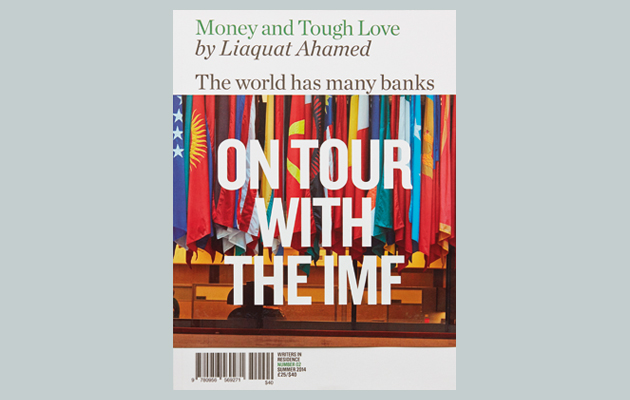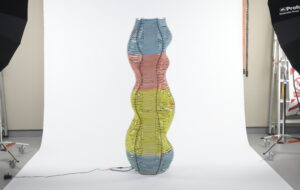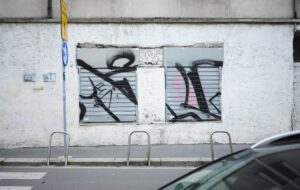|
|
||
|
Liaquat Ahamed’s journey to the heart of contemporary finance finds that, ultimately, there is nothing much to see. By Sukhdev Sandhu Finance can often seem like a form of occultism. Those money-market figures parroted on the evening news are a weird fusion of concrete poetry and robo-speak. Those stories about icebreakers chugging through the Northwest Passage laying fibre-optic cables below the sea floor to shave 60 milliseconds off the time it takes machines in Tokyo to transmit information to London: surely this is science fiction? Alain de Botton, in The Pleasures and Sorrows of Work, investigated the “horrifying, soulless, immaculate beauty characteristic of many of the workplaces of the modern world”. How, he wondered, might fields such as logistics or finance be better understood by the public? After the book’s publication, he set up an organisation named Writers In Residence that allows select writers, working in tandem with Magnum photographers, to get access to unusual places – Geoff Dyer aboard a US aircraft carrier, Douglas Coupland within global telecommunications company Alcatel-Lucent – and then publishes their embeddded ethnographies in smartly designed books produced by London-based Visual Editions. For many people, the International Monetary Fund (better known as the IMF) is an almost masonic entity, a post-national cabal that, alongside other grimly acronymic entities such as the WTO, operates behind the scenes, secretly pulling the strings of nation states and legislating a top-down market fundamentalism that harms as much as it helps democracy across the world. Liaquat Ahamed, a former investment banker and the Pulitzer Prize-winning author of Lords Of Finance: The Bankers Who Broke The World, admits: “Especially in countries to which the Fund has lent, it provokes the sort of vehemence once reserved for the CIA.” He finds it a more benign place than this reputation might suggest. Unsurprisingly so – as a graduate student visiting a friend, he met his future wife there. His goal in Money and Tough Love is to “shine a light on the Fund, to make the place more transparent to a wider public”. The local press around its headquarters in Washington DC shares some blame for that communicative failure; it largely ignores the IMF’s work in the belief that it’s too finicky and obscure, too foreign. But Ahamed also suggests that the 2,500 people from 150 countries who work at the IMF live in a cosmopolitan cocoon, rarely engaging with local people. Design plays a part here: many conference rooms have no natural light; the offices lend themselves to being holed up in. What is there to see? Eli Reed’s photographs are heavy on Styrofoam cups, older men with awkward hair, younger officials jabbing at their BlackBerries. Essentially nothing then. As such, Ahamed is faced with the same dilemma – the simultaneous power and anti-spectacle, perhaps even anti-“there”ness, of modern capitalism – that he describes when he contrasts the economic meltdown in Ireland to that in Greece: “Ireland did not face one of those street-centred panics. It had to deal with something more silent and invisible: a 21st-century digital run, where billions of Euros could be withdrawn from a bank in Dublin with the click of a mouse by an anonymous person sitting at a terminal in London or Frankfurt or Zurich.” Ahamed and Reed visit Washington, Tokyo, Dublin and Maputo. They attend receptions, cocktail parties, fancy dinners. They rub shoulders with bank governors and economics professors. They spot Larry Summers having breakfast with Bono in a Dublin restaurant, although a more pertinent sighting is the view travelling into the city from the airport: “The familiar shipwrecks of a real estate boom gone wrong: vacant office blocks for rent, deserted housing estates, half-completed corporate headquarters.” In Maputo, listening to stories of corruption and embezzlement at the highest levels, Ahamed wonders if “there was any point in conducting seminars for mid-level government officials on how to run an economy competently when all it took was some two-bit kleptocrat to undo it all”. It’s a valid question, although it skirts the question of whether the IMF itself is essentially a kleptocratic machine serving the interests of global elites. Sadly, when it comes to the broader question of whether modern journalism, however conscientious, can visualise – let alone help reform – the multi-tentacular nature of contemporary finance, Money and Tough Love offers few answers. |
Words Sukhdev Sandhu
Money and Tough Love: |
|
|
||



















